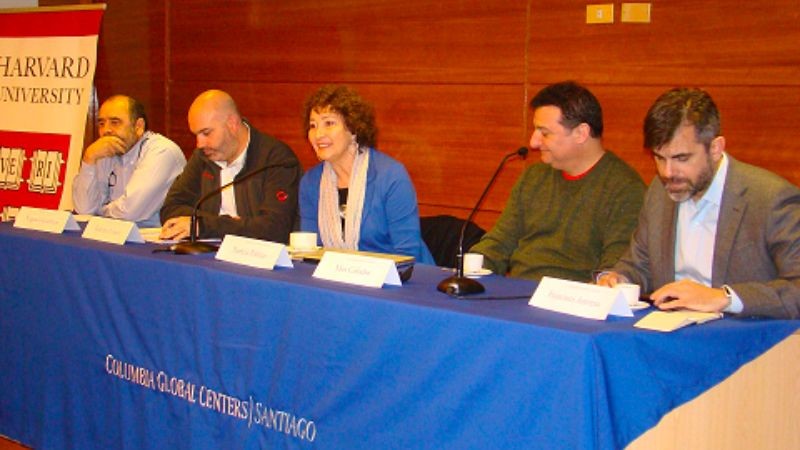On November 19, Chile will hold Presidential and Congressional elections. In early July, two of the three main political coalitions, the center-right alliance Chile Vamos and the leftist partnershipFrente Amplio, held primaries to select their presidential candidates, a process in which former President Sebastián Piñera and journalist Beatriz Sánchez were elected, respectively. The governing coalition Nueva Mayoría did not participate in the process and is running divided, with one candidate representing the Christian Democratic Party (Carolina Goic) and another one (Alejandro Guiller) representing its partners in the Socialist, Radical, PPD and Communist parties.
The Santiago Center teamed up with Chile’s MIT Club, the MIT Sloan Management Latin America Office, Chile’s Harvard Club and Harvard’s David Rockefeller Center for Latin American Studies Regional Office to organize the sixth version of the joint series on current events, this time focusing on the Chile’s political climate as the country approaches the November elections. The event, which featured top local political analysts, was chaired by Francisco Aravena, a Columbia alumn from the Journalism School that works as an anchor at Tele13 radio.
In a lively debate, journalist and writer Patricia Politzer, political analysts Max Colodro andEugenio Guzman, and pollster Roberto Izikson, discussed the reasons behind the extreme political polarization in the country, the different electoral scenarios and the consequences of a potential victory of Sebastián Piñera, who is currently leading the polls.
You can watch the video here.

